Ghana calls for reparations, climate justice, and fair representation at UN General Assembly
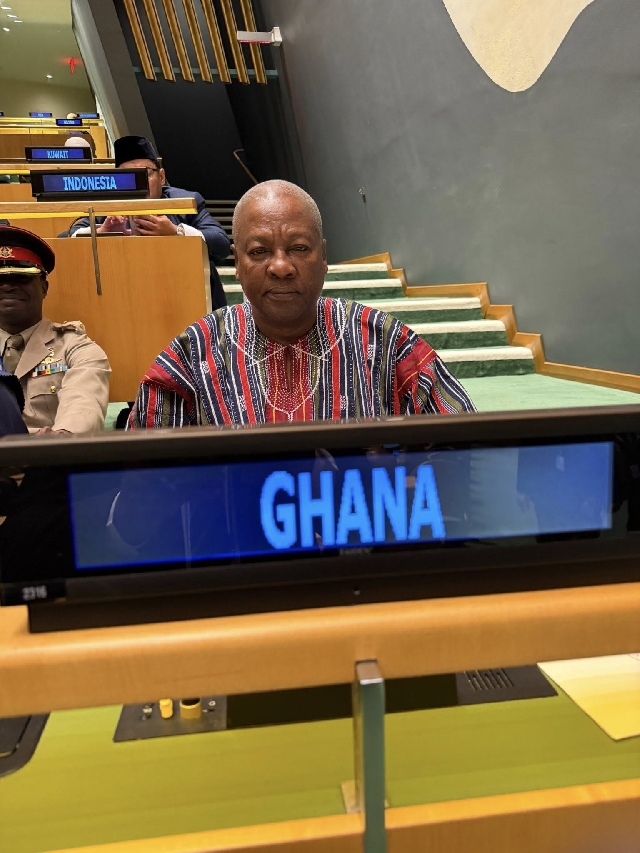 President John Mahama
President John Mahama
Ghana used its platform at the 80th United Nations General Assembly to issue a strong call for climate justice, reparations for slavery and colonialism, and greater global respect for migrants.
Delivering the address, President John Dramani Mahama condemned rising xenophobia in the West and reminded leaders that migration is often driven by forces beyond individual control, such as war and climate change.
“When leaders of Western nations complain of migration problems, they are often referring to immigrants from the Global South,” he said, pointing out that while the Global North produces 75% more greenhouse gas emissions, it is the Global South that suffers the harshest effects.
Quoting Somali-British poet Warsan Shire, the speech highlighted the desperation of displaced families: “No one puts their children in a boat unless the water is safer than the land.”
Ghana celebrated the contributions of African migrants across the globe, citing U.S. federal judge Maame Ewusi-Mensah Frimpong, Slovenian mayor Peter Bossman, Ghanaian-Norwegian designer T-Michael, and late UN Secretary-General Kofi Annan.
“These are not invaders or criminals. These are people who have brought great distinction to the countries they call home,” he declared.
On reparations, Ghana reaffirmed its role as Africa’s champion. “The slave trade must be recognised as the greatest crime against humanity,” he said, stressing that more than 12 million Africans were forcibly taken to enrich Western powers.
Ghana announced plans to introduce a UN resolution on reparations, demanding the return of looted resources and cultural artefacts.
The address also criticised declining international aid, noting a 40% drop in humanitarian support to Africa since July 2024, even as military spending rises worldwide.
Ghana urged African nations to assert sovereignty over their natural resources, declaring an end to exploitative concession agreements.
“We are tired of being represented only as poverty-stricken communities living beside vast foreign-controlled resource concessions,” he said.
“We must negotiate better and claim a bigger share of what belongs to us.”
Looking to the future, he celebrated milestones for women in leadership, including the election of Ghana’s Vice President Naana Jane Opoku-Agyemang and the hope that the UN will one day appoint its first female Secretary-General.
Quoting Indian author Arundhati Roy, the address closed with a hopeful note: “Another world is not only possible, she is on her way. On a quiet day, I can hear her breathing.”
Ghana’s final message was clear: building that new world requires justice, equality, and dignity for Africa and its people.
Source: Classfmonline.com/cecil Mensah
Trending News

Remain calm, opportunities coming – Asiedu Nketia to griefing NDC supporters at Kwahu Abetifi
08:44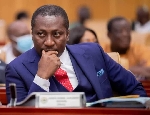
Minority: US-Ghana deportations unconstitutional, must be suspended immediately
15:15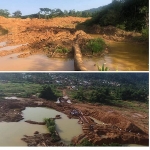
Lands Minister declares tougher action against illegal miners
10:38
TogetHER Project says clean-up exercise is a collaborative effort
14:16
A/R: NAIMOS secures Atwima Mponua forest reserve in major anti-galamsey raid
09:14
Asiedu Nketia urges NDC unity, pledges Mahama’s promises will be fulfilled
08:35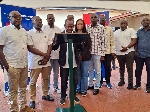
15 Eastern Region NPP MPs endorse Bawumia to lead 2028 race
12:05
Lands Minister unveils intensive training for anti-galamsey task force
10:15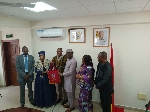
Deputy Education Minister welcomes Namibian delegation on educational exchange visit
11:56
W/R:NAIMOS task force, Blue Water Guards intensify anti-galamsey operations on Ankobra River
09:06



